
Vodka is a clear distilled alcoholic beverage. Different varieties originated in Poland, Russia, and Sweden. Vodka is composed mainly of water and ethanol but sometimes with traces of impurities and flavourings. Traditionally, it is made by distilling liquid from fermented cereal grains, and potatoes since introduced in Europe in the 1700s. Some modern brands use corn, sugar cane, fruits, honey, and maple sap as the base.

Irkutsk is the largest city and administrative center of Irkutsk Oblast, Russia. With a population of 617,473 as of the 2010 Census, Irkutsk is the 25th-largest city in Russia by population, the fifth-largest in the Siberian Federal District, and one of the largest cities in Siberia.

Moonshine is high-proof liquor, generally whiskey, traditionally made, or distributed illegally. Its clandestine distribution is known as bootlegging. The name was derived from a tradition of creating the alcohol during the nighttime, thereby avoiding detection. In the first decades of the 21st century, commercial distilleries have adopted the term for its outlaw cachet and begun producing their own legally sanctioned, novelty "moonshine", including many flavored varieties, that in some sense continue its tradition, generally having a similar method and/or location of production.
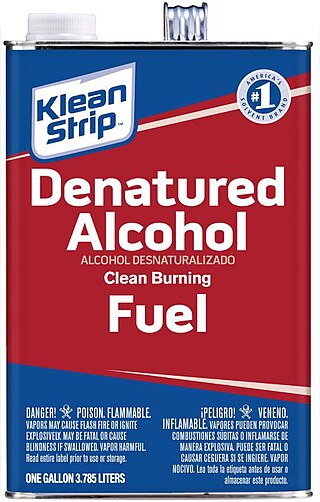
Denatured alcohol is ethanol that has additives to make it poisonous, bad-tasting, foul-smelling, or nauseating to discourage its recreational consumption. It is sometimes dyed so that it can be identified visually. Pyridine and methanol, each and together, make denatured alcohol poisonous; and denatonium makes it bitter.
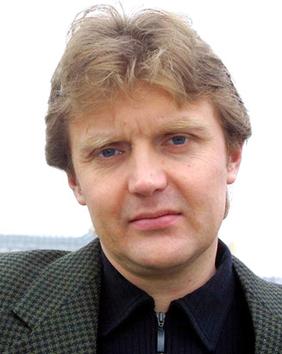
Alexander Valterovich Litvinenko was a British-naturalised Russian defector and former officer of the Russian Federal Security Service (FSB) who specialised in tackling organised crime. A prominent critic of Russian President Vladimir Putin, he advised British intelligence and coined the term "mafia state".
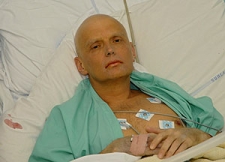
Alexander Litvinenko was an officer of the Russian Federal Security Service (FSB) and its predecessor, the KGB, until he left the service and fled the country.
Surrogate alcohol is a term for any substance containing ethanol that is intentionally consumed by humans but is not meant for human consumption. Some definitions of the term also extend to illegally produced alcoholic beverages.
Ethylene glycol poisoning is poisoning caused by drinking ethylene glycol. Early symptoms include intoxication, vomiting and abdominal pain. Later symptoms may include a decreased level of consciousness, headache, and seizures. Long term outcomes may include kidney failure and brain damage. Toxicity and death may occur after drinking even in a small amount as ethylene glycol is more toxic than other diols.
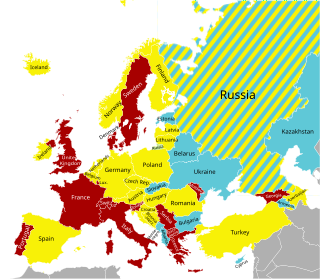
Alcohol preferences in Europe vary from country to country between beer, wine or spirits. These preferences are traditionally associated with certain regions. Hence, the Central European pattern of alcohol consumption is associated with beer-drinking, the Mediterranean pattern with wine-drinking and the Eastern or Northern European pattern with spirit-drinking countries. However, traditional preferences do not necessarily correspond to current drinking habits, as beer has become the most popular alcoholic drink world-wide.
The Pärnu methanol poisoning incident was a methanol poisoning incident in Pärnu county, Estonia in September 2001, caused by consumption of counterfeit vodka which had mistakenly been made with toxic methanol instead of ordinary ethanol. It led to the death of 68 people, very severe disability to 40 people, and severe disability to 3 people.
Alcohol consumption in Russia remains among the highest in the world. According to a 2011 report by the World Health Organization, annual per capita consumption of alcohol in Russia was about 15.76 litres of pure alcohol, the fourth-highest volume in Europe. It dropped to 11.7 litres in 2016, dropping further to about 10.5 litres in 2019. Another general trait of Russian alcohol consumption pattern was the high volume of spirits compared with other alcoholic drinks.
The 2011 Turkish Riviera mass alcohol poisoning was an event that occurred on May 26–27, 2011 during a party on a yacht voyage of mostly female Russian tourists on the way from Bodrum to Antalya, southwestern Turkey. It led to the deaths of five people, and the hospitalisation of twenty others, some in critical condition, after consuming alcoholic drinks mixed with methanol, served at the yacht's bar. A consignment of fake whisky had been supplied by a distributor with a fictitious address.
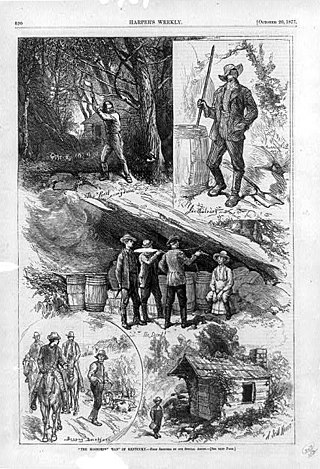
Nip joints, found most commonly in Appalachia and similar areas where corn is grown in abundance, are venues where illegal liquor is sold, often by the drink. Most nip joints are located in residential areas inside homes. The individual in charge is therefore referred to as the "House Man" or "House Lady". Some nip joints have more amenities than others.

Methanol toxicity is poisoning from methanol, characteristically via ingestion. Symptoms may include a decreased level of consciousness, poor or no coordination, vomiting, abdominal pain, and a specific smell on the breath. Decreased vision may start as early as twelve hours after exposure. Long-term outcomes may include blindness and kidney failure. Blindness may occur after drinking as little as 10 mL; death may occur after drinking quantities over 15 mL.
The following lists some of the events from the year 2017 in Russia.

Alcohols, in various forms, are used within medicine as an antiseptic, disinfectant, and antidote. Alcohols applied to the skin are used to disinfect skin before a needle stick and before surgery. They may be used both to disinfect the skin of the person and as hand sanitizer of the healthcare providers. They can also be used to clean other areas and in mouthwashes. Taken by mouth or injected into a vein, ethanol is used to treat methanol or ethylene glycol toxicity when fomepizole is not available.
The 2020 Punjab alcohol poisoning was an incident in late July and early August 2020, where at least 100 people died after drinking illegally-made toxic alcohol in Punjab, India. Hundreds of raids were conducted in the three affected districts - Amritsar, Gurdaspur and Tarn Taran - along with several other places in and around the Rajpura and Shambhu border in Punjab. Forty people were arrested in relation to the incident. Seven excise officials, six policemen were also suspended over the incident.










